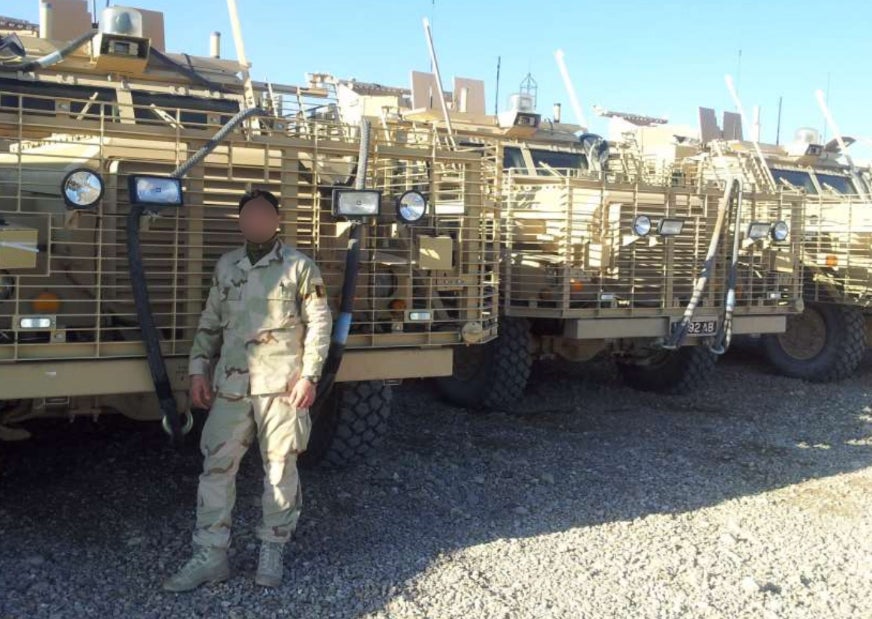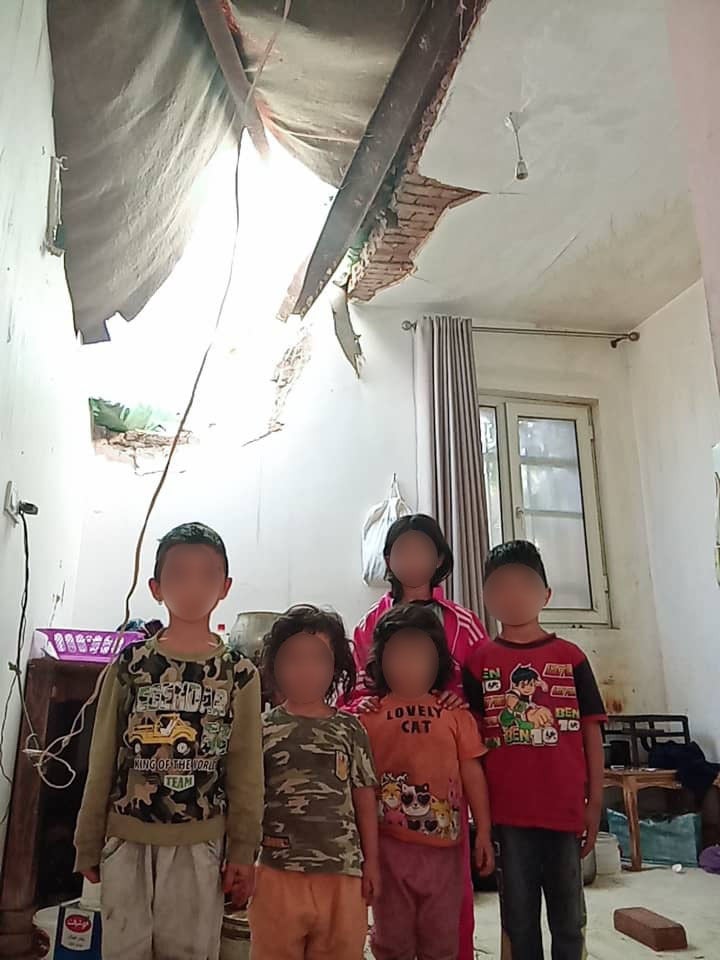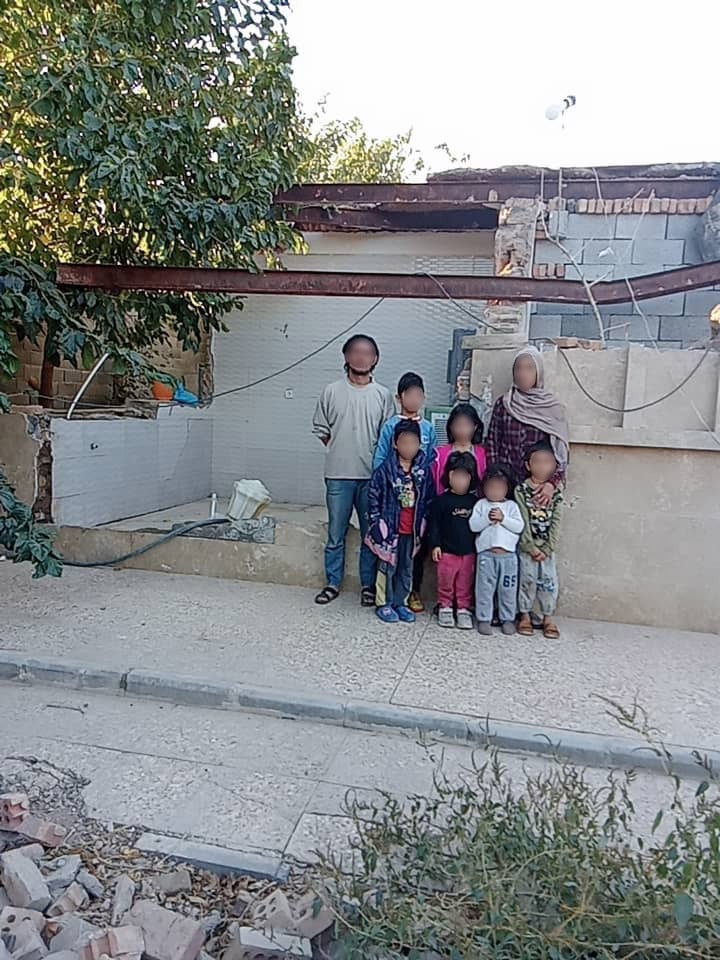‘How can we wait like this?’ Desperate plea of Afghan heroes in hiding as UK delays rescue
Investigation: They fought shoulder-to-shoulder with British troops in UK-run units in Afghanistan. Now these highly trained commandos are reduced to living in shacks, surviving on bread and scavenged food as the UK drags its heels despite promises to relocate them to safety. Holly Bancroft, May Bulman, Fahim Abed and Jessica Purkiss report
Your support helps us to tell the story
From reproductive rights to climate change to Big Tech, The Independent is on the ground when the story is developing. Whether it's investigating the financials of Elon Musk's pro-Trump PAC or producing our latest documentary, 'The A Word', which shines a light on the American women fighting for reproductive rights, we know how important it is to parse out the facts from the messaging.
At such a critical moment in US history, we need reporters on the ground. Your donation allows us to keep sending journalists to speak to both sides of the story.
The Independent is trusted by Americans across the entire political spectrum. And unlike many other quality news outlets, we choose not to lock Americans out of our reporting and analysis with paywalls. We believe quality journalism should be available to everyone, paid for by those who can afford it.
Your support makes all the difference.Afghans forced into hiding in Iran after fighting shoulder-to-shoulder with UK troops against the Taliban have urged Keir Starmer to bring them to safety urgently after months of delays.
Members of two Afghan special forces units, which were set up, trained and funded by the British, are living in desperation while they wait on a Ministry of Defence review of their relocation applications, asking: “How can we wait like this?”
The government announced in February that it would review around 2,000 applications from Afghans with credible links to these units, after an investigation by The Independent with newsroom Lighthouse Reports revealed that many were being wrongly refused sanctuary.
While ministers have started to sign off new decisions, many of these highly trained soldiers are still living in fear for their lives in Afghanistan, or barely able to feed themselves or their families in Iran.
‘We are alive, but not living’
Mahibullah feels a pang of guilt every evening when he sees his children go hungry. The family of 11 cram together in their tiny, one-room apartment in Iran, and make do with the scraps of food he has managed to get hold of that day with the small amount of money he makes from odd factory jobs. His children aren’t allowed to go to school. “We are alive, but not living,” he says wearily.
The family fled to Iran nearly two-and-a-half years ago after Mahibullah became a Taliban target for working with the British military in a specialist unit called Commando Force 333 (CF333). He had hoped they would be evacuated to safety under the UK government’s scheme for Afghans who served alongside British soldiers, known as the Afghan Relocation and Assistance Policy (Arap) – but his application was denied in 2022.
At first, life in Iran was manageable. Mahibullah had a regular factory job and the family could afford proper meals. But with the Iranian government announcing in September that it plans to deport around two million migrants by March, the majority of them Afghan, and new restrictions culling any of the limited freedoms that Afghans had, life is becoming near impossible.
“I’m working secretly, my teenage son too,” explains Mahibullah. “They will give us some work for a couple of days, then we won’t have work for five days. That’s why the money we’re earning is not enough. There are banners on companies saying they don’t hire Afghans. Even when we go to the bakery to buy some bread, they won’t sell it to the Afghans. It’s really difficult for us to survive.”
Mahibullah is one of many Afghan former commandos who served alongside British troops and were paid by the UK – in units called CF333 and Afghan Territorial Force (ATF) 444, collectively known as the Triples – who are still waiting in hope of receiving an email from the MoD to say that they will be relocated to Britain.
An investigation by The Independent, in collaboration with Lighthouse Reports and Afghan news outlet Etilaat Roz, has found that, while the Triples’ wait in limbo goes on, Britain’s adversaries are circling. Mahibullah is among former Triples we’ve spoken to who have received an offer to fight for Russia in Ukraine.
The former commando said he was approached last year. “We haven’t heard it directly from Russians, but there are contact people who are making lists,” he said. “I’ve been asked to send lists of my friends, and that they’d send our families to Russia and we’d be training Russians.”
He said he has turned down the offer because he was “hopeful” that he would hear from the MoD regarding his Arap application soon, and that the other Triples he knows who have received such offers have done the same. “None of the Triples have agreed to accept these offers because they’re hopeful that their cases will be approved.”
But Mahibullah said there was a “very big risk” that he and other UK-trained commandos may feel they have no choice but to take up the Russian offer if the UK don’t relocate them soon.
“How can we wait like this? The current situation is that it’s almost impossible to live. You are not able to find a job and as a refugee we only have so many savings. There will be an end line for me and I will pick one of these offers.”
Speaking to 14 former Triples inside Iran, as well as dozens more in Afghanistan, we established that there was an initial wave of recruitment offers to Afghan ex-military personnel in 2023, followed by a second wave earlier this year. We have seen a number of apparent recruitment forms that have been circulated among Afghan veterans in Iran. The forms, which are written in Dari, ask for personal details and contact information.

In February, the MoD announced that it would review around 2,000 Arap rejections within 12 weeks. But the process has been beset by delays.
Once a commando in the same British-run special forces unit as Mahibullah, Amir now spends his days working as a security guard for a family in Iran. Where once he would be earning around a thousand dollars each month for his service as a highly-skilled soldier, he now earns around £100 a month – barely enough to feed his six-person family.
When he comes home from work and his 12-year-old son asks him why he cannot go to school, he doesn’t know what to say.
His voice breaks as he describes the situation: “My wife and I have tried very hard to enroll the children in school but the Iranian government is very tough on this issue. They have refused to allow Afghans to go to school.
“My son has been asking me, ‘Am I going to be an uneducated person when I grow up, am I going to be struggling,’ and I have no words to explain the situation to him or to respond to him. I am under a lot of pressure; psychological pressure and pressure to help my wife and four children. The money I earn from being a guard is barely enough to feed my family with even the basics.”
Like many Afghan special forces soldiers who fled the Taliban, the former commando entered Iran illegally, as did his family, meaning he is at high risk of being deported back to Afghanistan if he is discovered.

Though he served alongside British forces in CF333, the UK has so far rebuffed his requests for help.
Amir too applied for the Arap scheme in August 2021, but was rejected for help in June 2023.
Though he has received approaches from Afghan middlemen about using his skills in Russia’s war in Ukraine, or in the Middle East, he’s adamant that despite his desperate situation, he will not fight for money. “I am not a rental soldier,” he said.
Ghulam, another Triples veteran, was arrested by Iranian police earlier this year on a trip to buy bread at the bakery and deported back to Afghanistan, where he remains living in fear of retaliation from the Taliban. He said: “Sometimes I even think about publishing all my documents online to help the Taliban find me and kill me because it is getting really difficult. But my friends in the UK are asking me not to do that and to keep waiting.”
Abdul Rahim, his wife Mina and their six children are currently living in a disused ice cream factory in Iran. Like Ghulam, Abdul Rahim worked for ATF 444.

“For dinner I only have bread,” Abdul Rahim explains. “I’m living in a really bad condition, no human being can survive here.” Photos of the abandoned building that the family are living in show how they have put plastic sheeting over the roof to try and shield them from the elements.
His wife, Mina, says: “I have six children and they all want to study and go to school. My request to the British government is to help us resettle because of all the hard work my husband did, putting himself at risk for British forces. My sons and daughters are always asking why they can’t go to school. They have to spend all their days at home.”

Sarah Fenby-Dixon, of Refugee Aid Network, said: “The desperation is palpable. With winter approaching, they cannot feed their children or buy fuel to keep them warm. It is now imperative that the MoD teams are adequately staffed to ensure that these people are brought to safety as quickly as possible.”
The MoD said: “As the minister for the armed forces made clear recently to parliament, we understand the frustration that the review is taking so long.
“Key issues within the review have been resolved and we are working hard to ensure that eligible former Triples and their families can move to start a new life in the UK.”
Names have been changed to guarantee anonymity of former Afghan military personnel.

Join our commenting forum
Join thought-provoking conversations, follow other Independent readers and see their replies
Comments